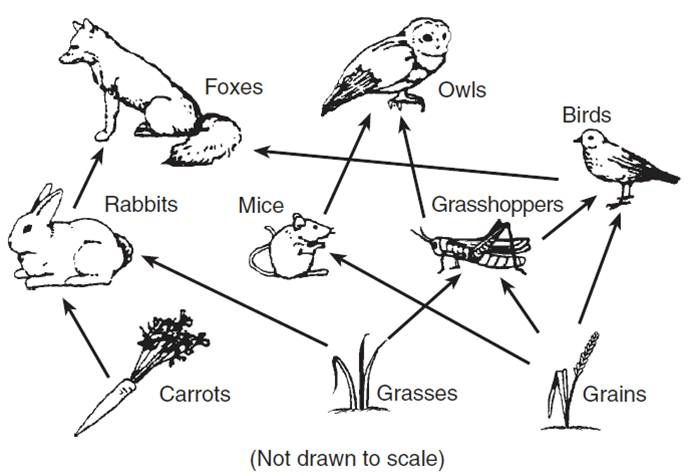What is the name of an organism that makes its own food.
Autotroph
How much ATP is created from cellular respiration?
36-38
What are the two different types of cellular respiration?
Hint: One uses oxygen, one does not.
Aerobic Respiration
Anaerobic Respiration
What is the ultimate energy source for most ecosystems?
The sun
What is the substance created during exercise which is responsible for the "burning"/sore feeling in your muscles?
Lactic Acid
Where does the light dependent reactions and calvin cycle occur?
light-dependent: thylakoids
calvin cycle: stroma
Define cellular respiration.
A process that changes glucose (sugar) into ATP (energy) the cell can use to perform its functions.
Name 1 way humans use fermentation to their advantage.
We make food using fermentation. Bread, cheese, alcohol, yogurt, etc.
How much energy does a consumer get from its prey? (What percentage of all of that animal's energy makes its way to the consumer?)
10%
What does products and reactants mean?
products- what is made in a chemical reaction (what you end with)
reactants - what goes into a chemical reaction (what you start with)
During photosynthesis, different gasses move in and out of plant cells. What moves in and what moves out?
Carbon dioxide moves in and oxygen moves out
Where does each step of cellular respiration occur?
1. Glycolysis
2. Krebs Cycle
3. Electron Transport Chain
1. Glycolysis - cytoplasm
2. Krebs Cycle - Matrix of mitochondria
3. Electron Transport Chain - The membrane of the mitochondria
What type of fermentation do animals/people do?
Lactic Acid Fermentation
A tree has 23,500 calories of energy. A giraffe comes up to eat the plant. A lion then eats the giraffe. How many calories of energy does the lion consume?
235 calories
Explain what would happen if the primary consumer of an ecosystem went extinct
Their prey would overpopulate and out-compete one another for food until there was no more of their food - throwing the entire ecosystem into a spiral.
What is light absorbed by and where does it happen?
Chlorophyll absorbs the light and it happens in the thylakoids of the chloroplast.
What is the equation for Cellular Respiration?
C6H12O6 + 6O2 -> 6CO2 + 6H2O
What type of fermentation happens with yeast?
Alcoholic Fermentation
What level on a trophic pyramid would the mouse be?
Primary Consumer
What are the byproducts of cellular respiration and photosynthesis?
cellular respiration - carbon dioxide
photosynthesis - oxygen
What is the equation for photosynthesis?
6CO2 + 6H2O -> C6H12O6 + 6O2
What are the 3 steps of cellular respiration? What happens at each step?
1. Glycolysis (makes 2 ATP)
- glucose broken down into pyruvate
2. Krebs Cycle (makes 2 ATP)
-break down pyruvate further to get electrons (NADH & FADH2), release CO2, get 2 ATP
3. Electron Transport Chain (makes 32-34 ATP)
- Electrons move through the ETC . Protons move from high to low concentration through ATP synthase
How much ATP is created from fermentation?
2 ATP
Name the first 4 levels of a trophic pyramid, starting with plants and continuing in order from there.
producers - plants
primary consumers - herbivores
secondary consumers - omnivores or carnivores
tertiary consumers - top of the food chain
Where does photosynthesis, cellular respiration, and glycolysis primarily occur?
photosynthesis - chloroplast
cellular respiration - mitochondria
fermentation - cytoplasm